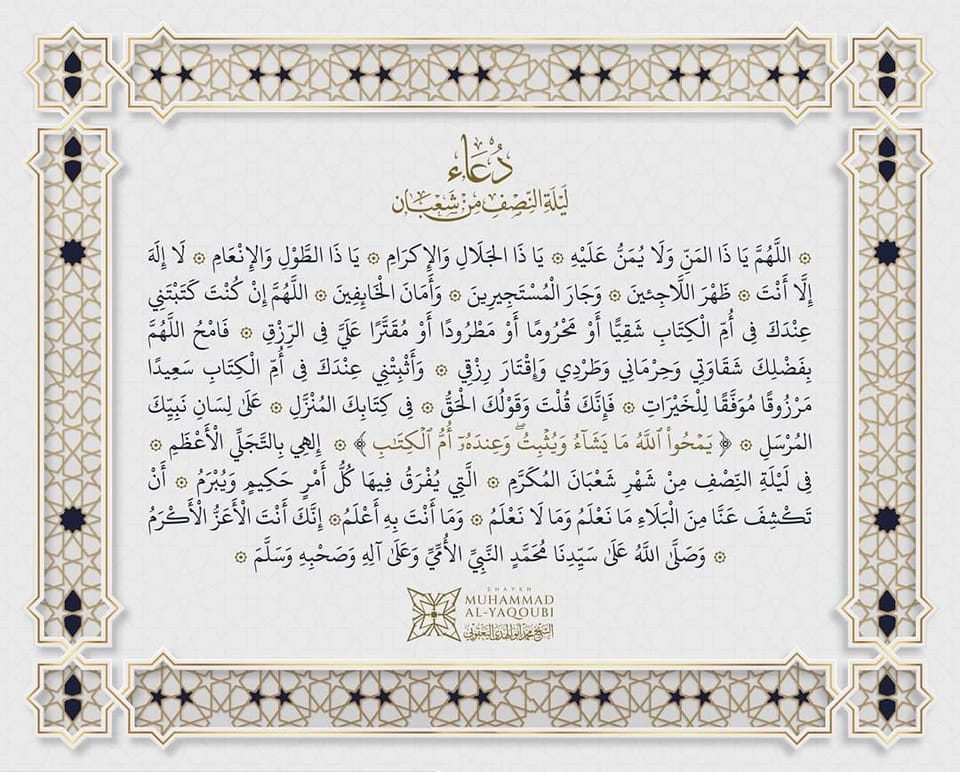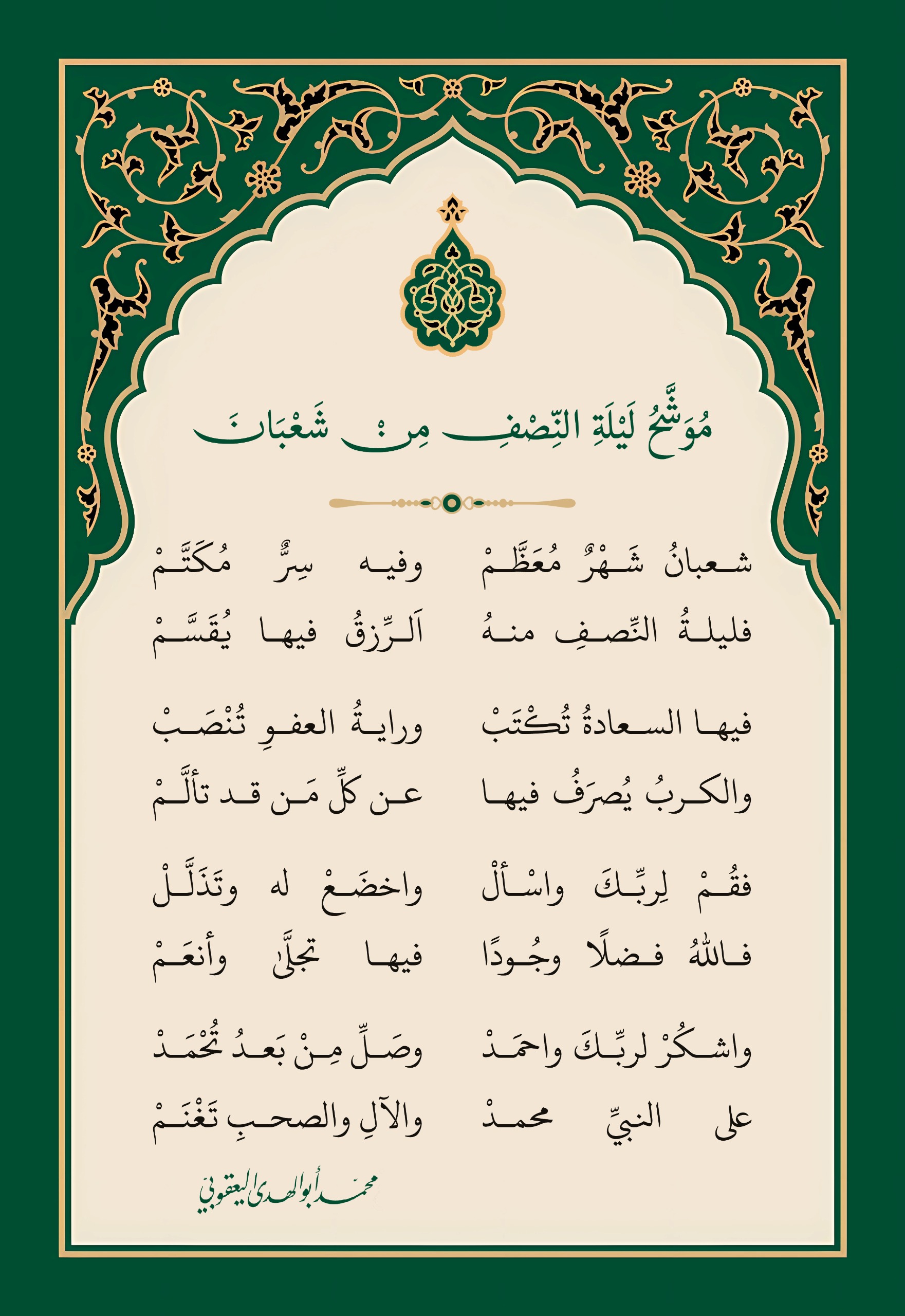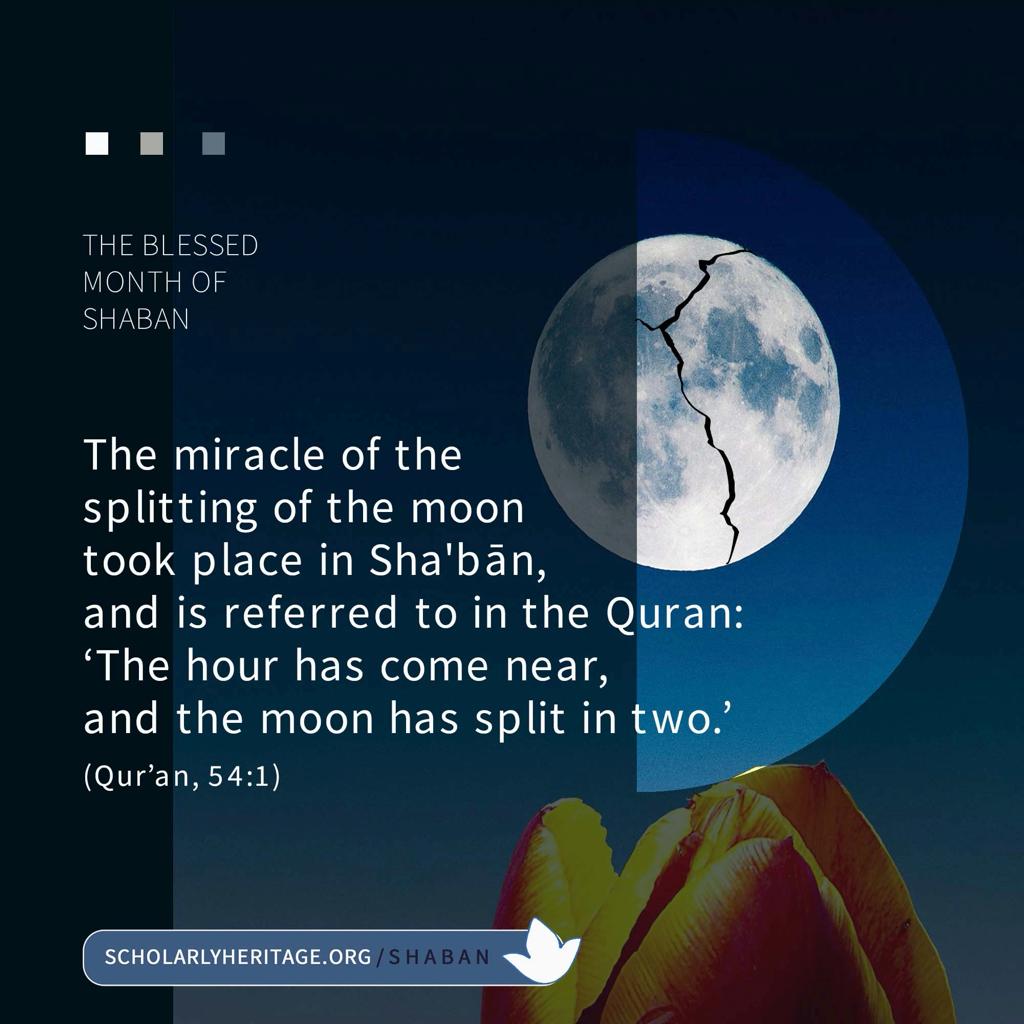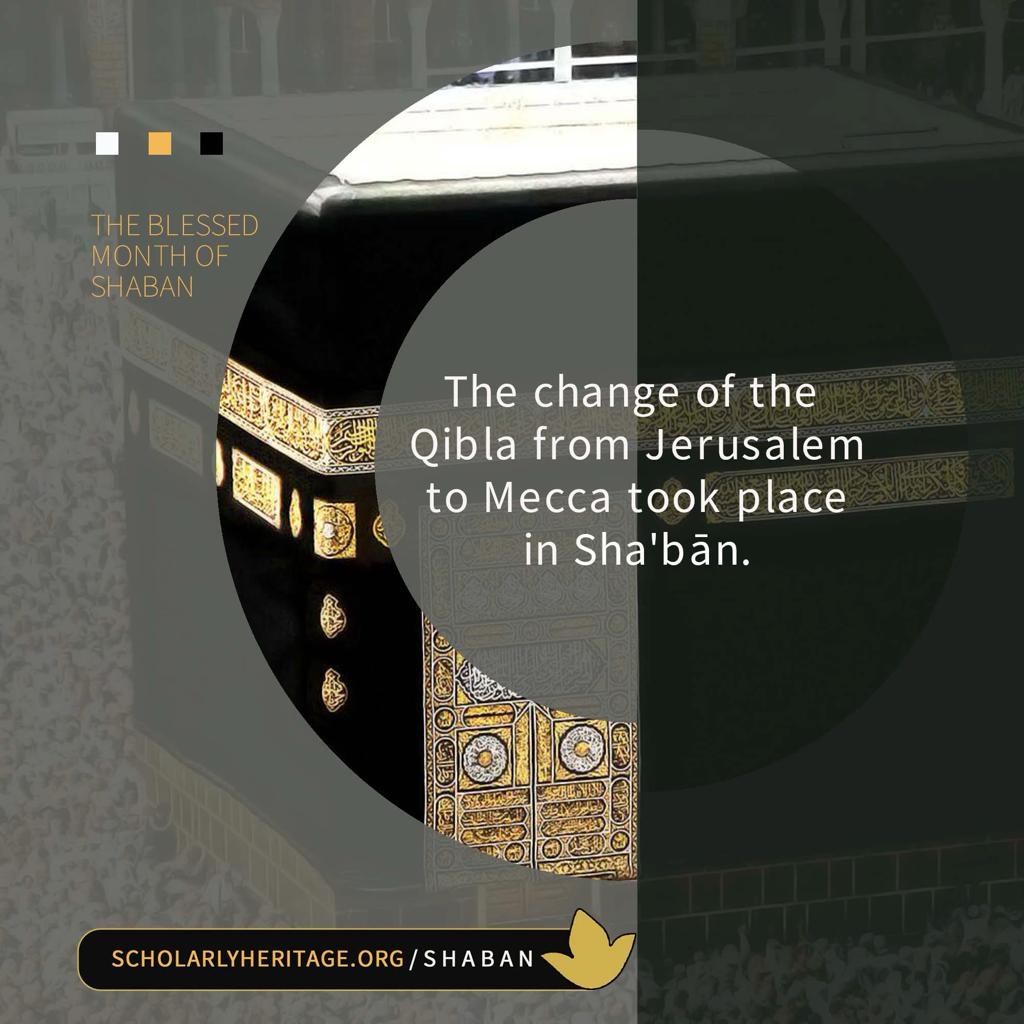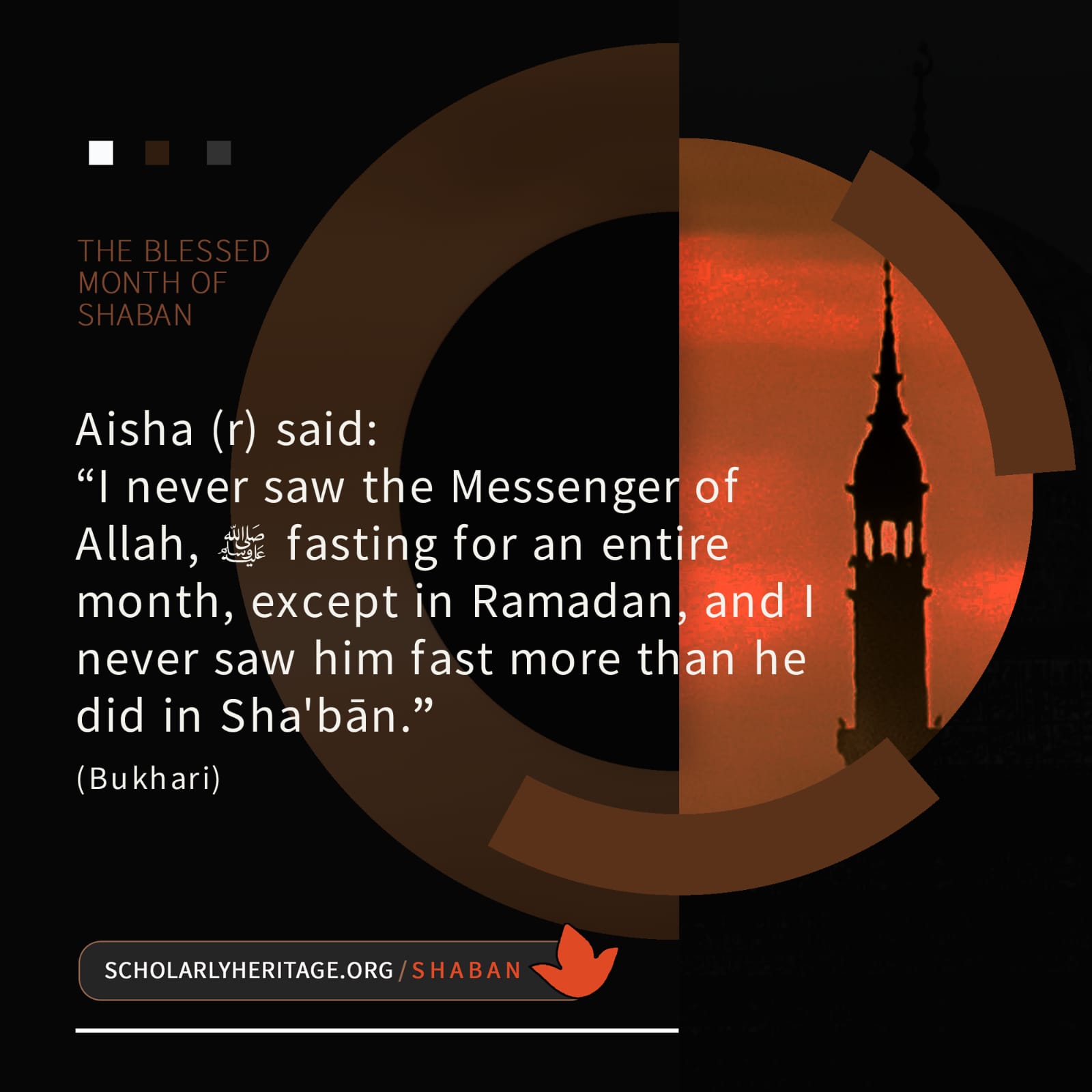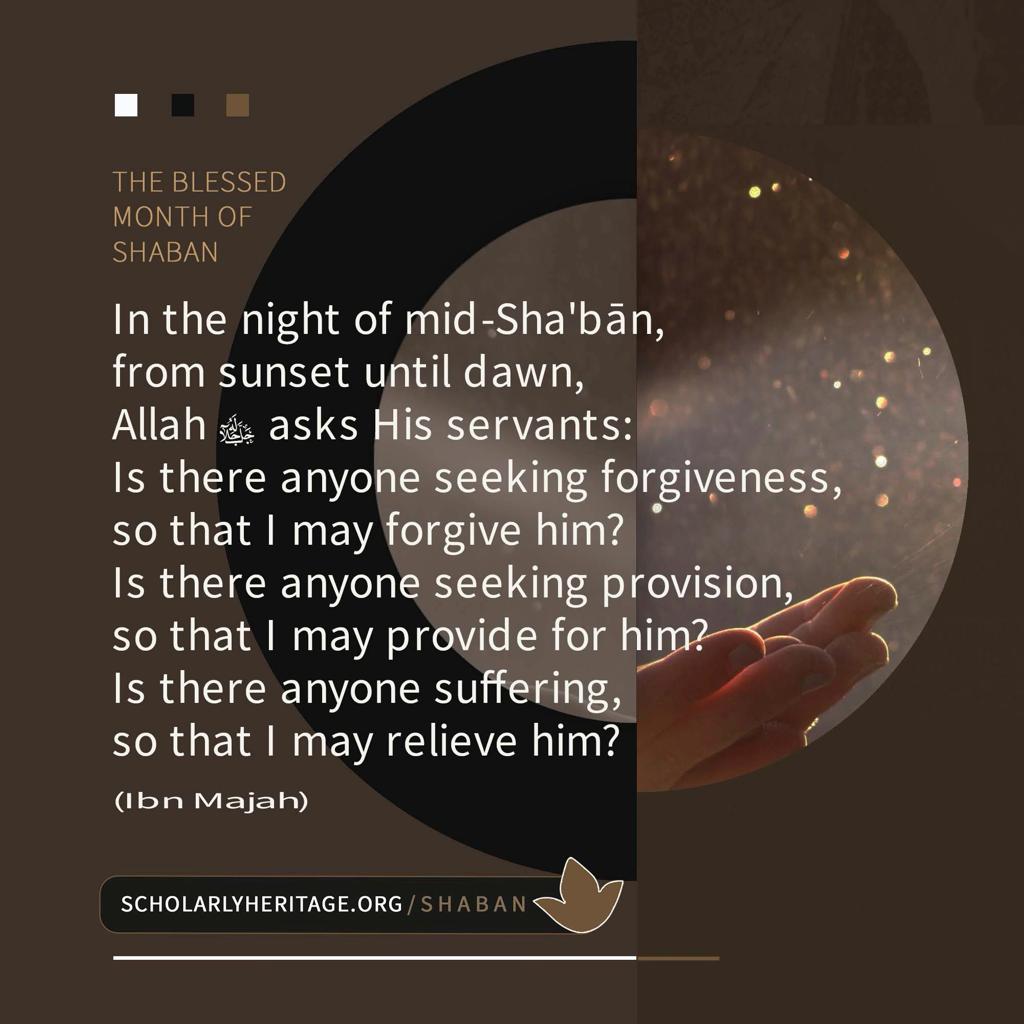ﷺ
The night of Mid Sh’ban is also called Laylat al-Rahma (The Night of Mercy), al-Laylat al-Mubāraka (The Blessed Night) and Laylat al-Barā‘a (The Night of Freeing from the Fire). In this night, all decisions are decided for the following year, and they are decreed on Laylat al-Qadr in Ramadan.
Quran
إِنَّا أَنزَلْنَاهُ فِي لَيْلَةٍ مُّبَارَكَةٍ ۚ إِنَّا كُنَّا مُنذِرِينَ ﴿٣﴾
فِيهَا يُفْرَقُ كُلُّ أَمْرٍ حَكِيمٍ ﴿٤﴾ أَمْرًا مِّنْ عِندِنَا ۚ إِنَّا كُنَّا مُرْسِلِينَ ﴿٥﴾
Ha-Mim. (1) By the Book that makes things clear; (2)
We sent it down during a Blessed Night: for We are the The Warner. (3)
In the (Night) is made clear every affair with wisdom, (4)
By command, from Our Presence. For We are the Sender, (5)
Surah Al-Dukhan 44:1-5
The “Blessed Night” may refer to Laylat al-Qadr or to the Night of Mid-Sha’ban. In this Night, Allah specifies for each individual his riqz and his life span, and if he will be blessed or wretched in after-life.
It has been related from Ibn ’Abbas (may Allah be pleased with him), with a chain that is sound according to Al-Suyuti, concerning the Ayah: (* Allah erases what He wants and confirms [what He wants]; and with Him is the Original of the Book *) (Al-Ra’d 13:39):
”In the Night of Mid-Sha’ban, all affairs of the year are managed, so Allah erases what He wants ad confirms the rest: (for whom He ordained) wretchedness and bliss (after death); death and life .”
It has also been narrated from Ibn ’Abbas:
”Allah determines all the fates in the Night of Mid-Sha’ban, and submits them to their Arbab on the Night of Power.“
Hadith
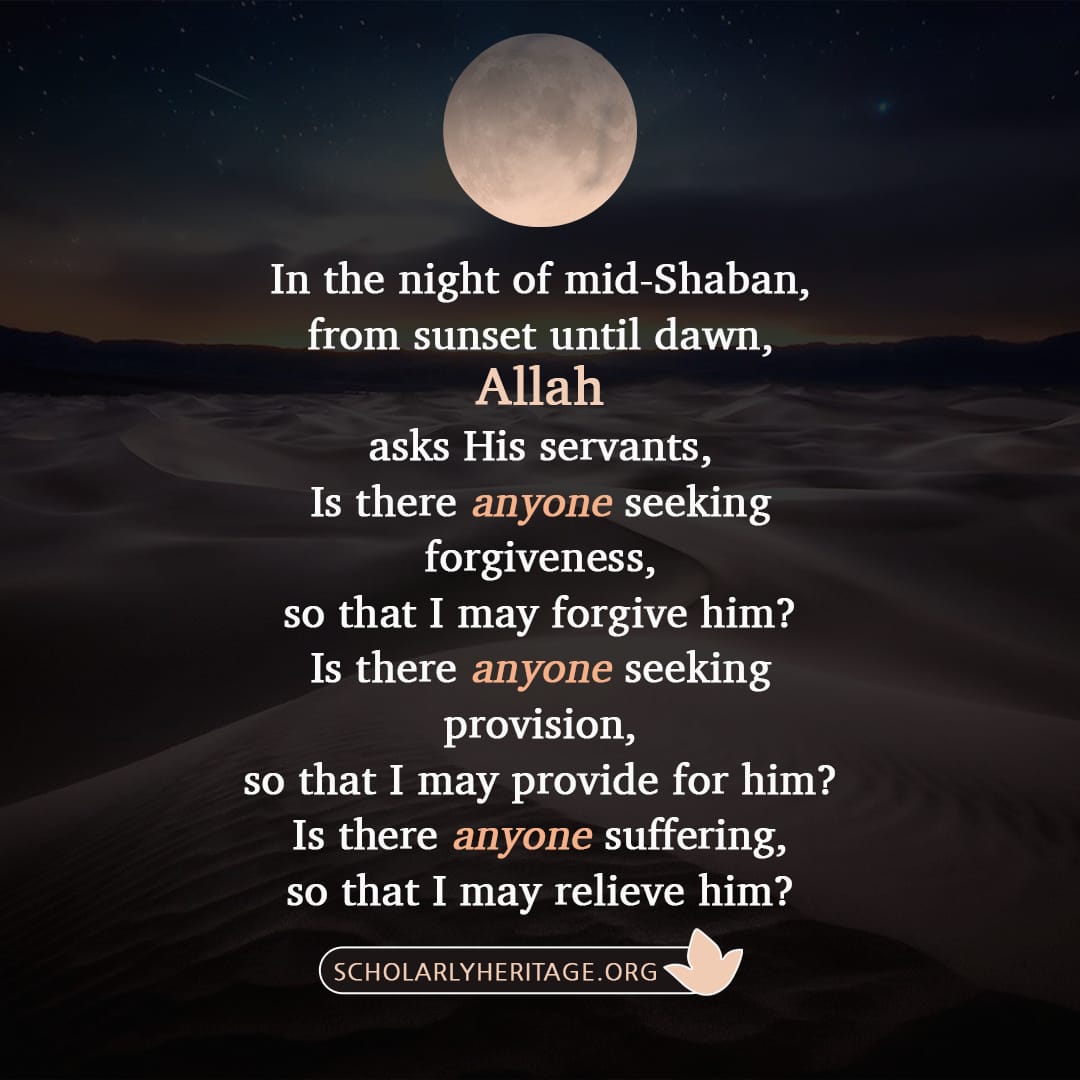
It is reported from Sayyiduna `Ali (Allah be pleased with him) that the Prophet ﷺ said:
Let all of you spend the night of mid-Sha`ban in worship and its day in fasting. Allah descends to the nearest heaven during this night, beginning with sunset, and says: Is there no one asking forgiveness that I may forgive them? Is there no one asking sustenance that I may grant them sustenance? Is there no one under trial that I may relieve them? Is there not such-and-such, is there not such-and-such, and so forth until until dawn rises.
Narrated by Ibn Majah with a weak chain, which is strengthened by various other narrations.
«يَطْلُعُ اللَّهُ تَعَالَى إِلَى خَلْقِهِ لَيْلَةَ النِّصْفِ مِنْ شَعْبَانَ فَيَغْفِرُ لِجَمِيعِ خَلْقِهِ إِلا لِمُشْرِكٍ أَوْ مُشَاحِنٍ»
Allah looks at His creation in the night of mid-Sha`ban and He forgives all His creation except for a mushrik (idolater) or a mushahin (one bent on hatred).
Reported as sahih by Ibn Hibban, Bayhaqi, Ibn ’Asakir and others. Also mentioned in Musnad Imam Ahmad, specific chapters in Suna of Tirmidhi and Ibn Majah.
«إِنَّ اللَّهَ تَعَالَى لَيْلَةَ النِّصْفِ مِنْ شَعْبَانَ يَعْتِقُ مِنَ النَّارِ عَدَدَ شَعْرٍ يَعْنِي غَنَمَ كَلْبٍ وَيُنْزِلُ أَرْزَاقَ السَّنَةِ وَيَكْتُبُ الْحَاجَّ وَلا يَتْرُكُ أَحَدًا إِلا غَفَرَ لَهُ إِلا قَاطِعَ رَحِمٍ أَوْ مُشْرِكًا أَوْ مُشَاحِنًا»
Sayyida ‘Aisha (may Allah be pleased with her) has reported in a longer hadith that the Profet ﷺ said:
“Allah descend to the nearest of the heavens in the night of half Sha’ban and grant His pardon to more people that the hairs of the flocks of the tribe of Kalb” (a tribe famous because of the large number of flocks they had)., and He sends down the Rizq for the coming year, and who will do Hajj. He doesn’t leave anyone without having forgiven him, except the one who cuts the ties of kinship, or the mushrik or the one who has hatred.”
